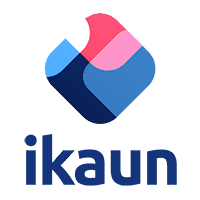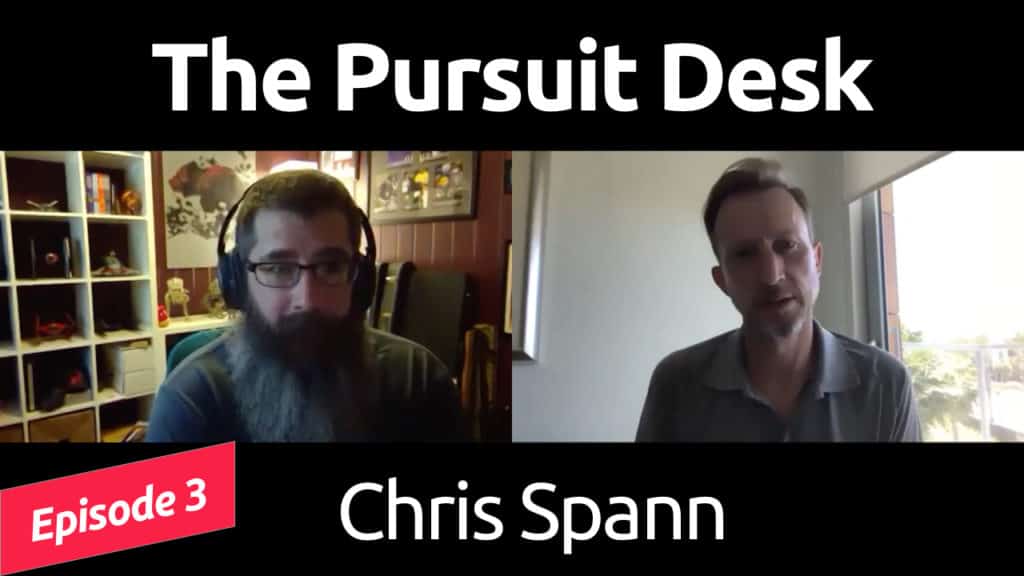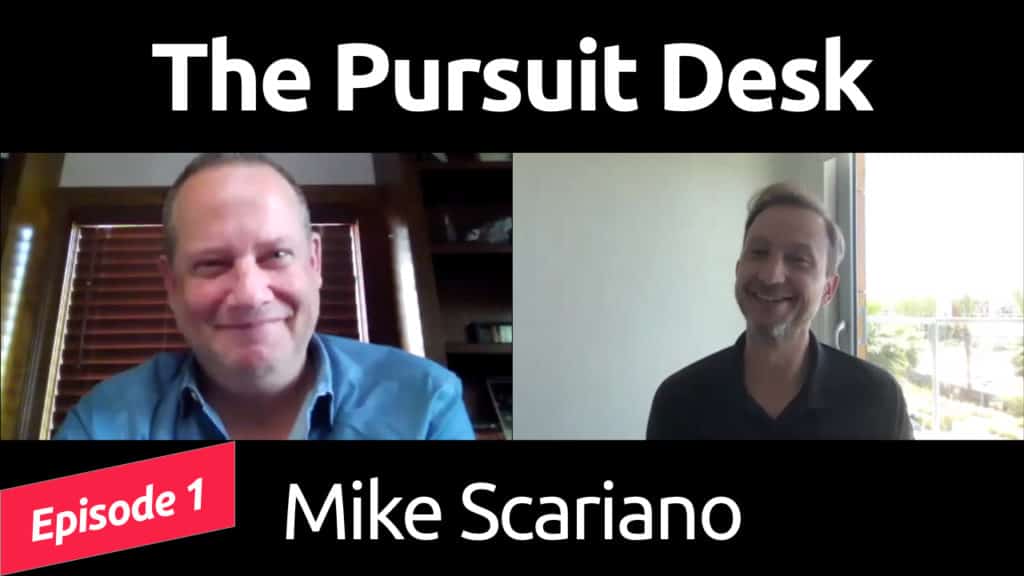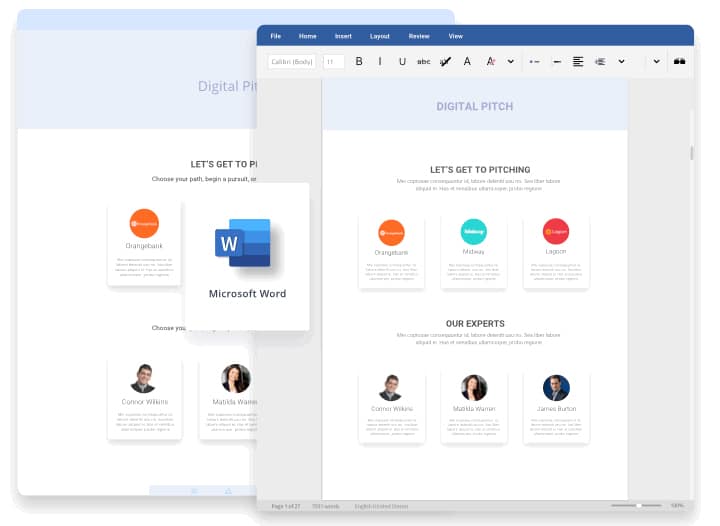This blog is part of a series focused on Sales Enablement, a modern business solution designed to help sales and marketing teams sell more effectively using information, content, and tools. Each blog will focus on a topic in the transformational technology space that can help sales and marketing become more efficient.
Your organization has valuable information, and lots of it. If you’ve been helping customers solve problems in their business, then you’ve been building knowledge within your organization. Yet, too often when the sales team goes in for a pitch, your customer is staring at a dated, generic deck built with a one-size-fits-all approach.
As the B2B world grows more complex, the deals do too, a recent Harvard Business study shows the number of people involved in a B2B purchase has gone up over 20% in the last two years. As buyers grow more risk-averse and emphasize safety in their decision making, sellers must adjust.
How can a sales team adjust to a new, information-packed world? What lessons can we learn from ghosts of pitch decks failed?
The composition of a winning pitch deck in 2019
Every great sales professional knows the saying, “people buy stories”. But how does your story translate through a team of six as they relay the message like a game of telephone? Not favorably.
A well-crafted pitch deck conveys three things:
- a compelling story
- builds trust through data and research
- shows the customer you understand their problem
When communicating value to the customer you should also consider how easy you’re making the sale. A good pitch deck allows your champion within the business to carry on your marketing message effortlessly. Ultimately, an easy buying experience will increase your chances of closing the sale by 62%.
Top 5 reasons pitch decks fail
Despite the fact that a pitch deck can be an important part of the sales process, sales reps are only closing about 29% of the opportunities they’re pitching.
While there are all kinds of problems likely inherent in this number, we know that the sales pitch deck is often a contributing factor. Five of the most common problems with these documents include:
- Failure to address the customer’s specific problem, and how you can eliminate it
- Failure in covering risks, and how you will address them
- Wrong chart data or the application of the data is too vague
- Failure to address the competition
- Too much content
A huge oversight for sales teams is neglecting to keep in mind that the real reason for the pitch is to solve a problem that the customer has. Fortunately, technology can help.
Transformative tech and its new role in your pitch
Artificial Intelligence (AI) and Machine Learning (ML) are now processing information faster than ever before. AI is estimated to be only a couple of decades from passing up the human brain as the most efficient information processor in existence. All considered humans are still experts at making connections with other humans and solving complex business problems that may not have enough data to help a computer solve.
If you consider personalization and specificity as a high priority when attempting to close a sale, how can we use AI to get us there?
Sales enablement software acts as a hub for your organization’s experience and information, dynamically storing and distributing it to the users who need it most. Consider a simple case study: your organization has pitched over 100 customers in the last year with varying success. Each pitch diversified its contents slightly based on the industry, company size, product, internal experts and more. When your next pitch comes up, how will you select the deck you want to use? Which experts will you include? How much time will be required to make it perfect?
The answer too often is that “perfect” just isn’t an option, and many of the items above will be overlooked. Luckily, a modern sales enablement software solution, powered by AI, can handle much of the time-consuming work in just a few clicks.
On ikaun’s platform, a user can build a dynamic pitch deck that is completely custom in moments. Just select the assets, people, and information you want to include.
Export the information to a sharable link, or a branded slide deck.
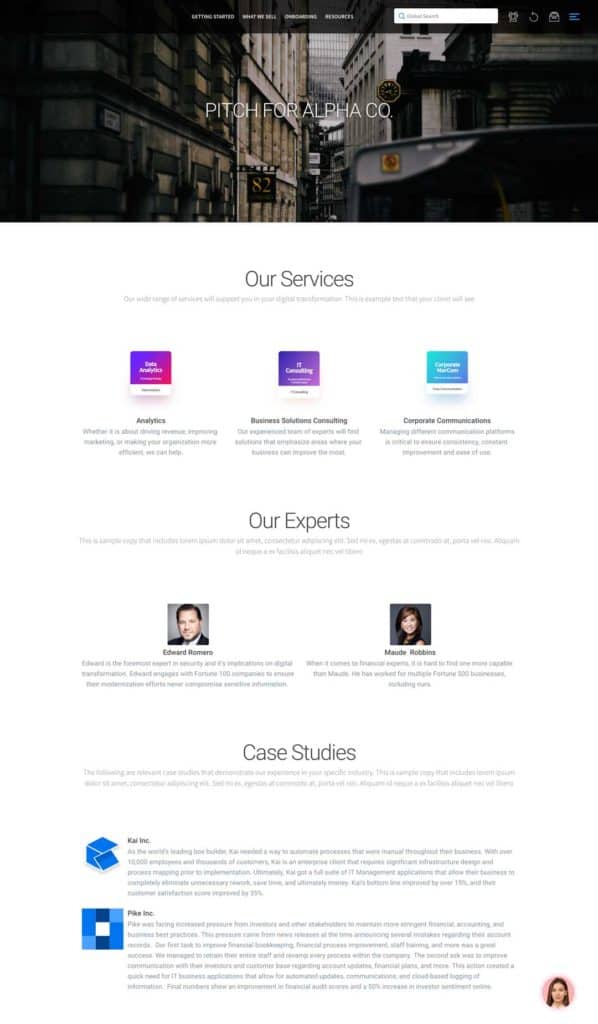
If your team is struggling to convert, or they’re using pitch decks that are one-size-fits-all, empowering them with cutting-edge tools will enable them to spend more time on tasks that add authentic value.

Intelligent Proposal Automation
With powerful document automation, ikaun enables firms to generate proposals, pitches, and legal submissions using dynamic, branded templates. Conditional logic, real-time data mapping, and seamless CRM integration ensure that ever document is accurate, compliant, and on-brand.

Experience Capture
ikaun serves as a centralized structured repository for firm knowledge, allowing teams to store, organize, and access critical business information efficiently. Customizable data fields, robust search, and automation rules ensure information remains accurate and easy to retrieve.

CVs and Biographies
ikaun captures and structures firm-wide experience, enabling teams to showcase expertise efficiently. Integrated attorney biographies and matter profiling provide instant access to relevant credentials, improving business development and cross-selling opportunities.

Award Submissions
Automating the directory submission process, ikaun collects relevant case studies, manages referee tracking, and formats entries to meet the exacting standards of legal ranking bodies. This reduces submission time while ensuring law firms present a compelling and competitive profile.

Seamless System Integrations
ikaun integrates with essential firm systems, including CRM, billing, experience databases, and marketing tools. Whether pulling structured data for proposal automation or pushing updates to a firm's website, ikaun ensures data flows seamlessly across the organization, eliminating redundancy and manual updates.

